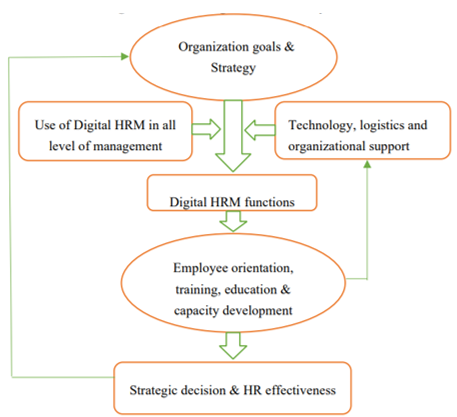Digital HRM Prospects and Challenges: Role in the Improvement of Worker Behavior
Main Article Content
Abstract
The study's goal is to learn how HRM is impacted by the advent of digital technology. The idea is to examine the expanding responsibilities of HRM in a period of fast technological development. Human capital, along with intangible resources and expertise, is gaining recognition among researchers as an important factor in establishing a competitive advantage via digital transformation. When a firm has ownership of its assets, such assets are seen as commodities or in-house expertise that may be used to gain a market advantage. One hundred people working in Bangalore's IT sector were chosen using a basic random selection method. Qualitative methods were used in conducting the survey. The survey asked respondents to weigh the pros and cons of HRM's increasing digitization. The data may be subjected to a content analysis in order to help us identify the overarching concepts at play here. Despite digitalization's extensive effect on regular operations and practises, especially in terms of potential, HR's participation in supporting the digitization plan gets less focus.

